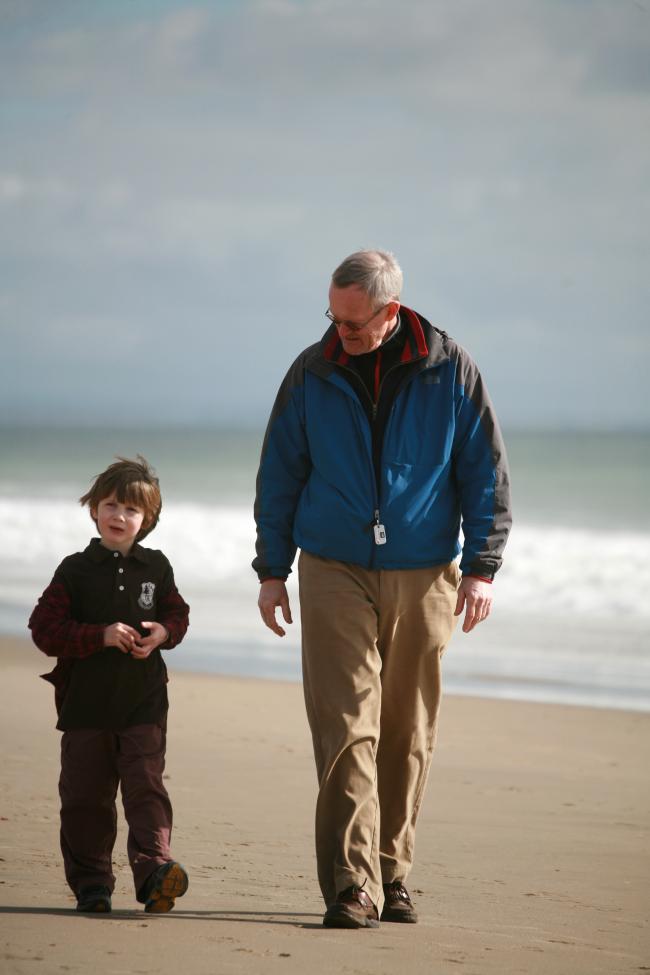Filmmaker warns of 'world without fish'
Sven Huseby walks with his grandson Elias in a scene from "A Sea Change." "He was so oblivious to the camera that it just felt like we were spending wonderful times together," Huseby said.
Mon, 05/18/2009
Sven Huseby, an environmentalist and an educator, learned at an early age that the health of the natural world is inextricably linked with the fate of the people living in it.
Huseby grew up in Ballard in the 1950s as part of the area's Norwegian community. His father built homes primarily for fishermen returning from Alaska.
"Most of us in Ballard at that time were linked to the world of fish and the well-being that it provided for many," he said.
The summer after graduating from Ballard High School in 1961, Huseby read "Sand County Almanac" by Aldo Leopold. Leopold's book revealed to Huseby that the environment is "a fragile, living and interconnected organism."
Nearly five decades later, he sees that organism in crisis.
Huseby is the producer and star of "A Sea Change: Imagine a World Without Fish," the first-ever documentary on ocean acidification, which premiers June 1 at the Seattle International Film Festival.
"Right now we are seeing a perfect storm for our fish populations," Huseby said. "Waters are warming, pollution is increasing, and the sea is becoming more corrosive."
Ocean acidification is caused by increasing levels of carbon dioxide in the water.
It negatively affects organisms, such as oysters, clams and crabs, that use calcium carbonate to make exoskeletons. It also is damaging to tiny organisms that are a major food source to many fish species, including salmon.
"These changes are really the hidden costs of modern life," Huseby said.
He said the rates of current increases in ocean acidity rival those of the K-T extinction period, which saw the end of the dinosaurs 65 million years ago.
"We have to slow, to decrease and to reverse this increasing acidity if we want to sustain life in the oceans as we have come to know it," Huseby said.
He said ocean acidification has been overpowered by the concern over global warming and climate change, and scientists are only recently starting to look at it.
Huseby himself became aware of and concerned by ocean acidification while reading a 2006 article in The New Yorker.
The public isn't as aware of the dangers rising carbon dioxide poses to the ocean because people don't see or think about what happens under the ocean's surface, he said.
"I think most people see the oceans as endless and vast," Huseby said. "How could our actions actually change the fundamental chemistry of something so huge?"
Huseby believes humans have a short window in which to change their ways, including moving beyond fossil fuels, in order to save the ocean. The issue need to become a top priority and needs a 10-year plan of action, he said.
"We have to think of this challenge in a way similar to what we did when we decided to send a man to the moon," he said.
"A Sea Change" is a family affair for Huseby. It was directed by Huseby's wife Barbara Ettinger and includes Huseby's 5-year-old grandson Elias.
It shows June 1 at the Egyptian Theatre and June 2 at the Kirkland Performance Art Center.


